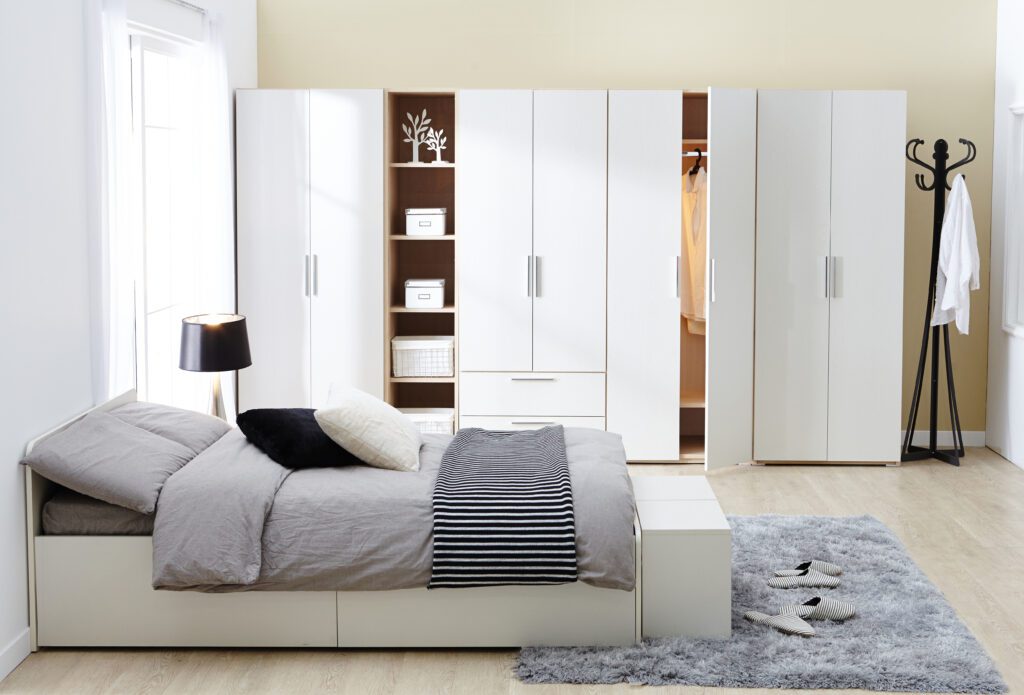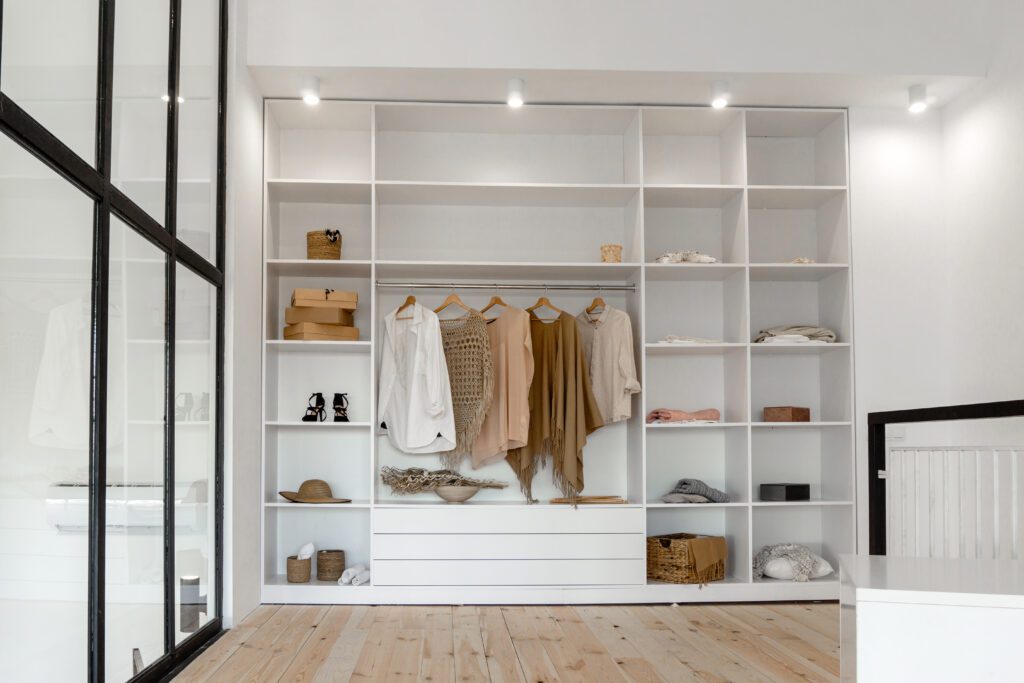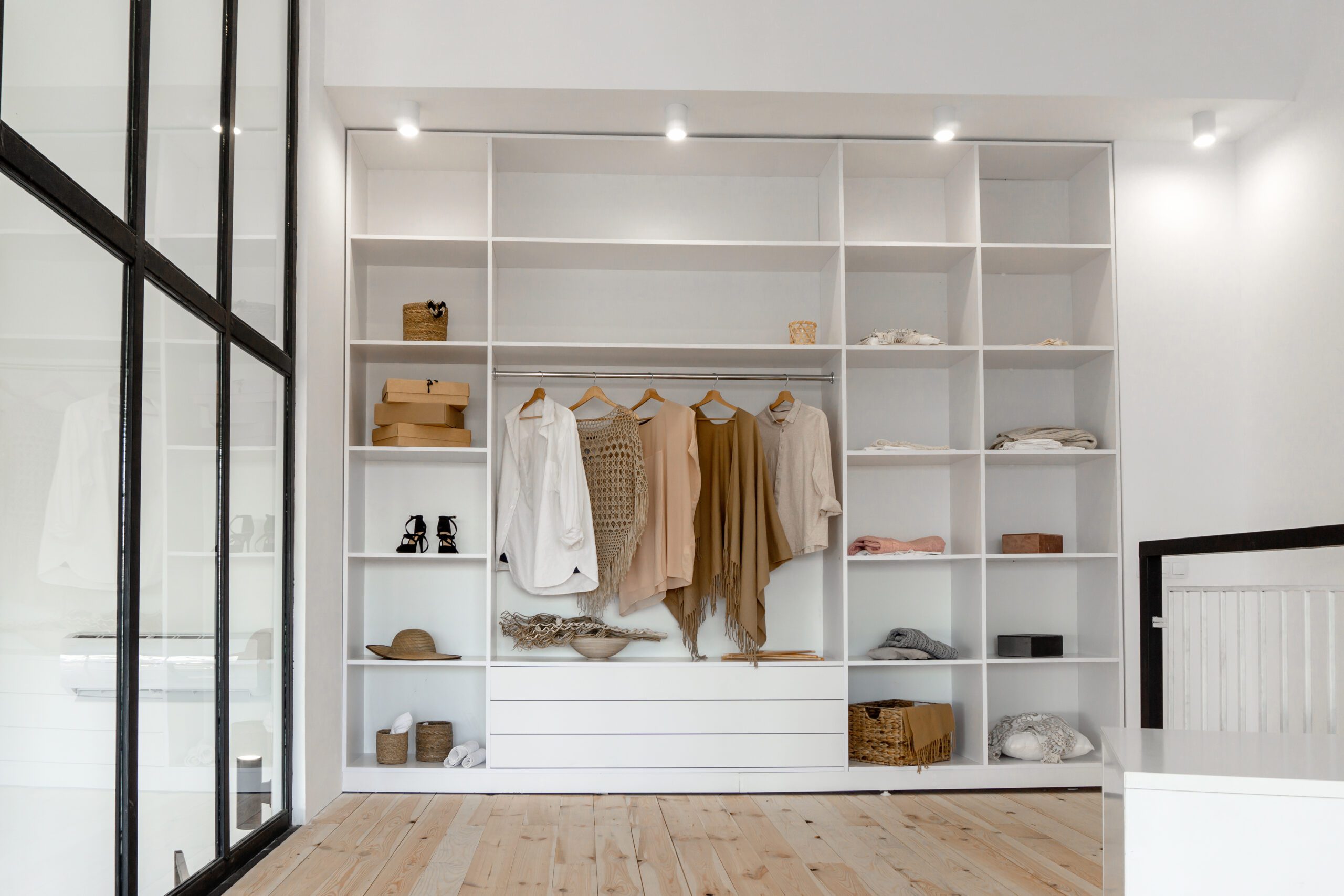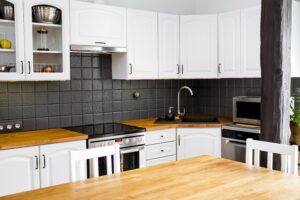Traditional closet doors offer privacy, dust protection, and a neat appearance, while open closets create a sense of spaciousness and encourage organization. Consider your lifestyle, room size, and aesthetic preferences when deciding between closed or open closets. Innovative alternatives like curtains, room dividers, and sliding doors offer flexible solutions that blend the benefits of both styles
The modern trend these days answers the age old question of whether bedroom closets need doors. The answer is mostly NO, they don’t, but certainly depends on your situation. As I’ve said in a few other articles, were in the midst of a total remodel of my daughters’ house, so this debate is going on real time as I write this post. So let’s look at this question in depth and dive into the necessity and benefits of having doors on bedroom closets versus the growing popularity and practicality of open closets. We’ll explore the various facets of this debate, drawing insights from several distinct perspectives to form a deep understanding.
Benefits of Closet Doors
Traditionally, closet doors have been a staple in bedroom design, offering a multitude of benefits. They serve as a barrier, keeping dust and sunlight away from clothing, thus prolonging their lifespan. Privacy is another significant advantage. Closet doors can act as a barrier, keeping personal items out of sight. Security, too, plays a role; doors can lock, safeguarding valuables.

Closet doors can also contribute to the overall aesthetics of a room. They offer a clean, organized look, hiding any potential clutter. This aspect is particularly important for those who may not have the time or inclination to keep their closets meticulously organized – hmmm, sounds like someone I might know – who will remain nameless – but she’s my daughter 😉. The doors act as a facade, presenting a neat-tidy appearance regardless of the chaos that might lurk behind them. That someone might not like that comment, but we’ll see how closely she reads my blog post here. She should, she’s the Creative Director for Trustworthyhomeadvice.com.
The Appeal of Open Closets
On the flip side, open closets are gaining traction in the world of interior design. Advocates for doorless closets argue that they can make a room feel more spacious and open. This design choice is often seen in smaller bedrooms, where every inch of space is valuable. Open closets eliminate the need for door clearance, freeing up precious room.

Open closets also encourage minimalism and organization. With everything on display, there’s a greater incentive to keep items neat and orderly. This visibility can be both aesthetically pleasing and practical, making it easier to find and choose clothing and accessories. Furthermore, open closets can be a statement piece in bedroom decor, showcasing a well-curated wardrobe as part of the room’s overall aesthetic.
Balancing Aesthetics and Functionality
The decision between closet doors and open closets often boils down to a balance between aesthetics and functionality. While doors offer a neat, cohesive look, they can make a space feel smaller and may not suit every style of decor. Open closets, while trendy and space-saving, require a level of organization and minimalism that may not be feasible for everyone.
Consider your lifestyle and personal preferences. For those who value a streamlined, modern look and are committed to maintaining an organized space, open closets can be a superb choice. Conversely, for individuals who prefer a more traditional aesthetic or have a more extensive wardrobe, closet doors might be the more practical option.
Innovative Alternatives to Traditional Closet Doors
For those seeking a middle ground, there are innovative alternatives to traditional closet doors. Curtains, for instance, can offer a softer, more flexible solution. They can be drawn back to open up the space or closed for privacy. Folding screens and room dividers provide another option, adding an element of design while concealing the closet contents.
Sliding doors are a modern alternative, combining the benefits of traditional doors with a more contemporary aesthetic. They take up less space than swinging doors and can be designed to blend seamlessly with the room’s decor. Glass doors, too, offer a compromise, protecting clothes from dust while still displaying the wardrobe.
Final Thoughts
So, the question of whether bedroom closets need doors is not one with a universal answer. But I hope this post gave you something to think about if you are remodeling or considering some minor changes to a bedroom. It depends on individual needs, space constraints, and personal style preferences. While traditional closet doors offer privacy, security, and a neat appearance, open closets cater to a more modern, minimalistic aesthetic and can make a small space feel larger. Alternatives like curtains, room dividers, and sliding doors provide versatile solutions that can adapt to various styles and needs.
Ultimately, the choice between closet doors and open closets should align with your lifestyle, wardrobe habits, and the overall design vision for your space. Whether you opt for the classic elegance of closed doors or the chic openness of a doorless closet, the key is to create a space that feels both functional and aesthetically pleasing to you.




